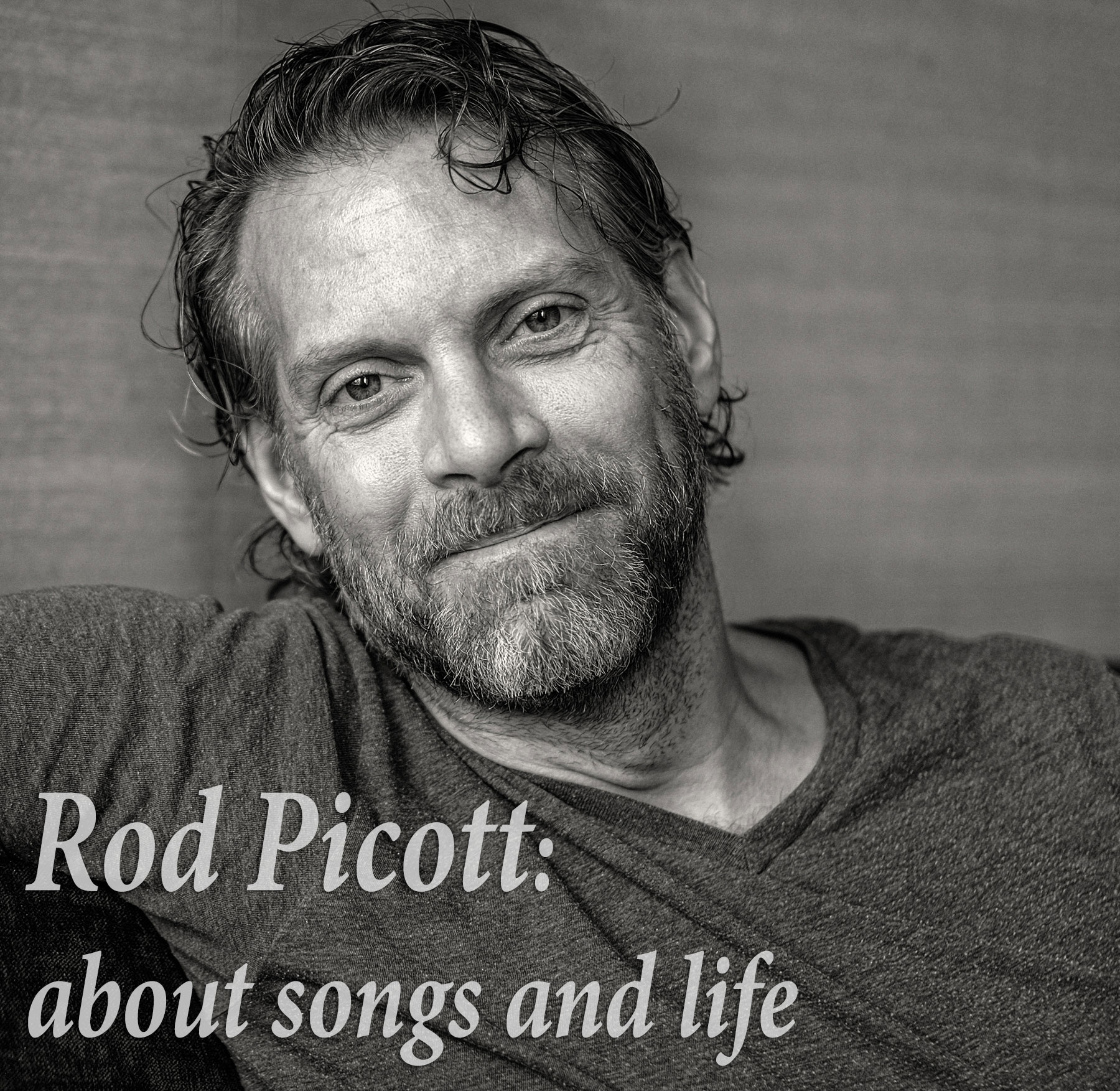
[blockquote cite=” short bio from RodPicott.com” type=”left, center, right”]The son of a welder from rural New England, Rod Picott is a masterful songwriter and soulful singer who carries with him as fine a suitcase of songs as you’ll find anywhere. Slaid Cleaves, Ray Wylie Hubbard and Fred Eagelsmith have recorded Rod Picott songs. A former construction worker who hung up his tools when he released his debut CD in 2000, Picott has carved a career for himself with a run of 6 beautifully crafted self released CDs over the last 13 years and a well earned reputation as a engaging, emotion fueled performer..[/blockquote]
I drove up to Haugesund at 11:30 on Friday Sep 26, plenty of time to find a place to park before I would get to talk to the great singer/songwriter, Rod Picott. Or so i thought, but there where nowhere to park, I had no coins to put on the meter and I when I finally found parking space I had to run to get to Amanda Hotel where Mr. Picott was waiting. I hurried in to the hotel lobby and found Rod Picott sitting and smiling in a sofa in the lobby. We said hello (I was a bit stressed out and even forgot to tell him my name) and we started to talk.
I must also say that I saw Rod Picott in concert later the same day at Smio, Vea, Karmøy. He gave a fantastic, intimate and funny show, exceeded all expectations. I will post picture from the concert all through this interview.
Alldylan (A): I’ve been listening a lot to your records lately, and in the car on the way over I listened to your latest album…
Rod Picott (R): Does it work in the car? (smiling)
A: … oh yeah, especially the car-song, 65 Falcon. The car is of course a metaphor.
R: Yes
65 Falcon:
A: … a metaphor for freedom just as Springsteen’s Thunder Road..
Rod Picott laughs and says: but not as elegant
A: Oh, it is very good and it rings very true. Most people in these parts has a strong connection to USA and understands the significance of cars, not just to get from A to B.
R: The song is a bit of a throwback, there aren’t many car songs right now, but I love songs that paints pictures. It’s a small song with many details, I really like those kinds of songs. To me it speaks of freedom and a little rebellion, You know, in the states a car, in some ways, communicate who you are. Not just in a matter of finances, it communicates other things…a sense of how you see the world. I used to have a 65 Falcon. So it’s all true.
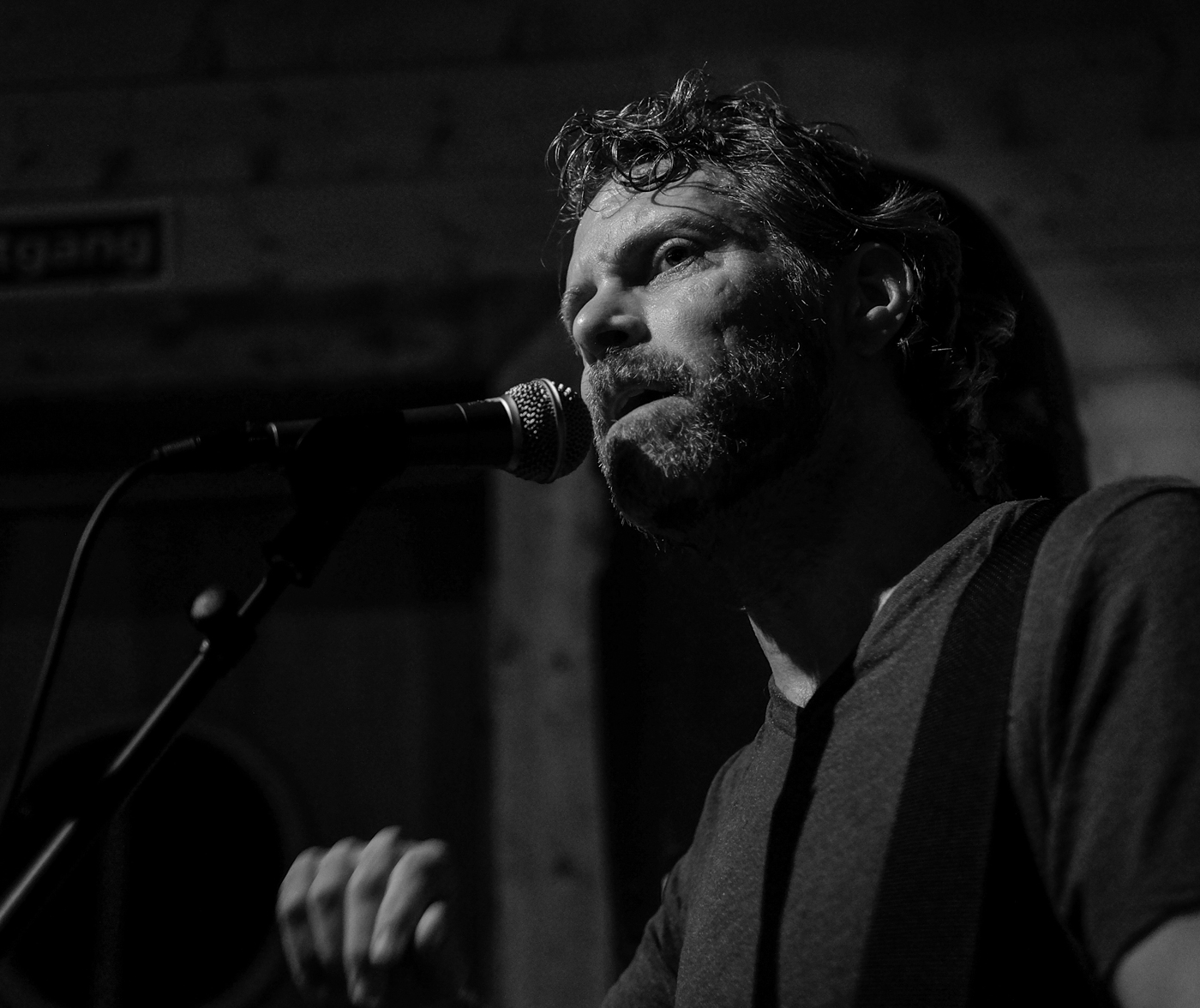
A: You are some times called a blue-collar or a workingman’s songwriter, do you see yourself that way?
R: Ah, well, It’s interesting, I don’t think about that when I’m writing, but that’s the background that I come from. The images and stories comes from having that background, they follow me. You know, I was still hanging plaster boards till I was 36 years old, I spent a long long time in that world and always with one foot in and one foot out. It’s just the world I come from, my father was a welder. The issues of how you see yourself in the world follow me, are important and poignant to me. You know how it is, in some ways you always remain the person of the place where you come from, and the people who have affected you.
It’s all part of me.
A: When did you start to write songs and playing for an audience?
R: I was in a garage band, when I was 14. We were called, The Magic Rats, and we couldn’t play at all, he, he. We just sat and listened to records and tried to figure out the songs, we had no internet! We got the lyrics all wrong. You know, Springsteen has talked about how it felt being a kid and put a guitar on. So powerful, giving some definition to yourself. This is who I am.
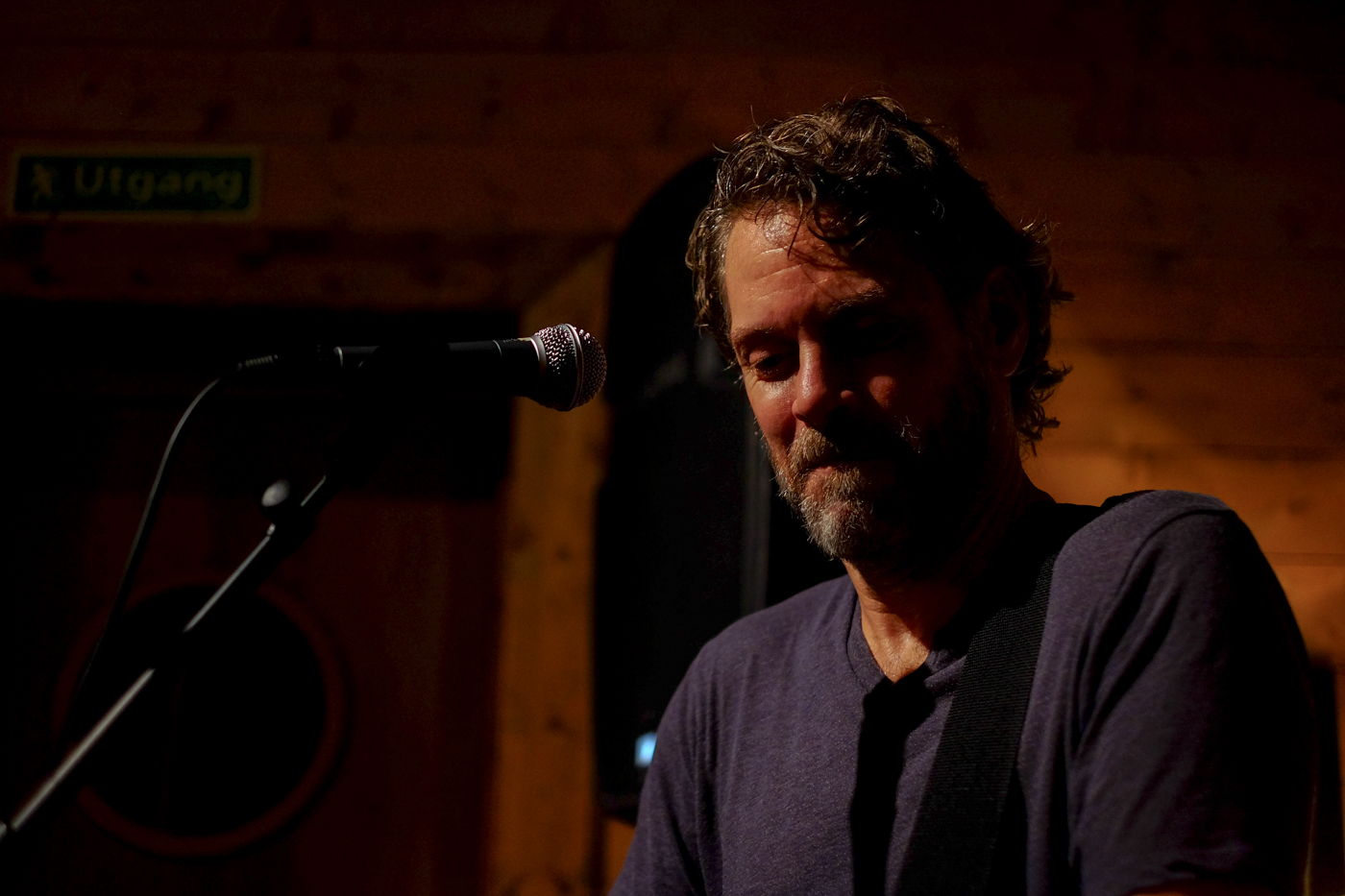
A: Your latest album, to me, can be separated into some extremely personal, almost painful songs and then you got the other stuff that we talked about, the cars and the working people. I see it as a sort of break-up record…
R: ..it is, sort of, yeah.
A: Do you agree that an artist has to suffer, that hard times makes good art?
R: I don’t think hard times make good art, but I believe that the most meaningful and changing parts of your life are often difficult. Those are the things that end up defining you. Not the moments of joy. The truth is, I’m just drawn to the things I write about. These are the things I pursue. I don’t write about partying and drinking beer, I’m not that kind of songwriter. I think that songs with a certain weight, a certain heaviness are more meaningful to people. They feel good to me to sing. The show is very balanced even if many of the songs are heavy, I talk to the audience a lot, I don’t stand there with my jaw hanging down.I love to include a hint of humor along the way. This is something that I’ve come to lately, not as much on the early records. I’ve always loved writers like John Prine, that can finesse a bit of dark humor into a serious song, because there’s always…even in your hardest times you may smile and think, can it get any worse! (laughing) How dark is this day gonna get?
I like the way Prine puts very serious songs and humorous songs right next to each other, as if that is how it should be. It’s brave and it’s beautiful.
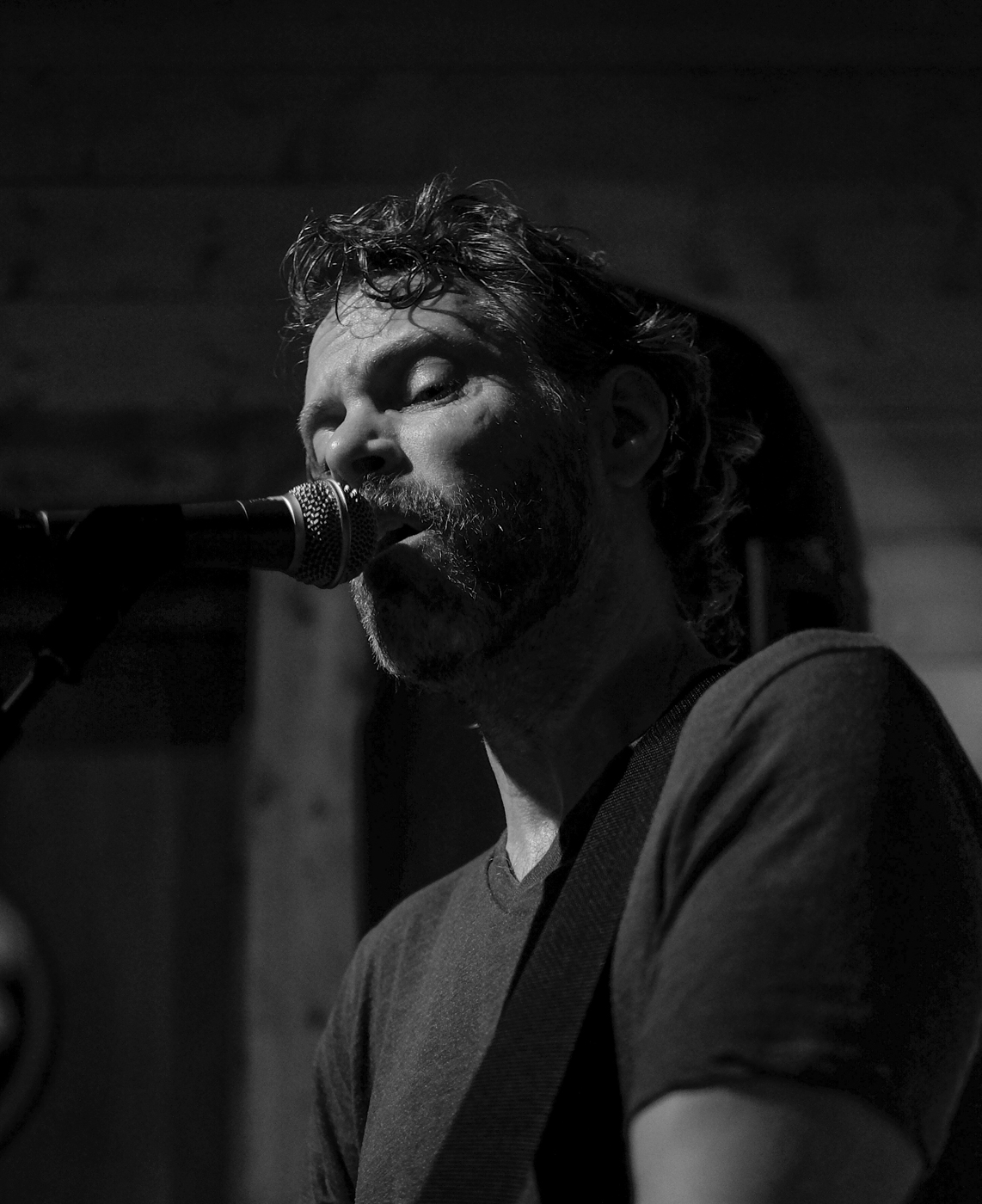
A: …and then you got the family songs. I’m especially thinking about the songs about your father.
R: It took my a long time to write about my father, we had a complicated relationship. Like many people do. My father is a very tough guy, came from a rough background. Very, very rough. These people were farmers, but not just farmers, they were the bottom tier of the place they came from. My father lived part of his life on the porch of his house. Just a very hard-working guy, simple guy, and I , he he, turned out to be a singer/songwriter. I was a very different kind of kid than he was, and I think a lot of times he didn’t recognize himself in me. We had a difficult time for many years.
This has all changed for me over the years and I’ve grown closer to my father. My dad wasn’t a mean guy, he was just tough and strong, you know what I mean?
Very, very quiet.
Milkweed and I might be broken now are the two songs I’m closest to on the record. Sometimes it doesn’t get revealed until after some time has passed. You make a record and your happy with some and not so happy with others, but over time you see which ones that sort of rise up. Milkweed, I feel very close to, it’s an unusual way to write a song this way. I don’t want to sound bragging, but it was technically unusual, I wrote it from the perspective that I had already lost my father…
A: The first time I heard it, I thought you had lost your father.
R: …right, that wasn’t , I mean, it was intentional but it’s an odd way to write a song. I’ve written like that a couple of times before, and I’m attracted to those kinds of songs that tell a story but just with small details, without telling you the story. You see the character in the story revealed through the small things.
A: I like the image of him singing a gospel song even tough he cannot remember the words, it tells us quite a bit about the character.
R: Thank you! I think of it as my William Carlos Williams song. Like The Red Wheelbarrow, the small things that seem so meaningless but are so meaningful.
Milkweed:
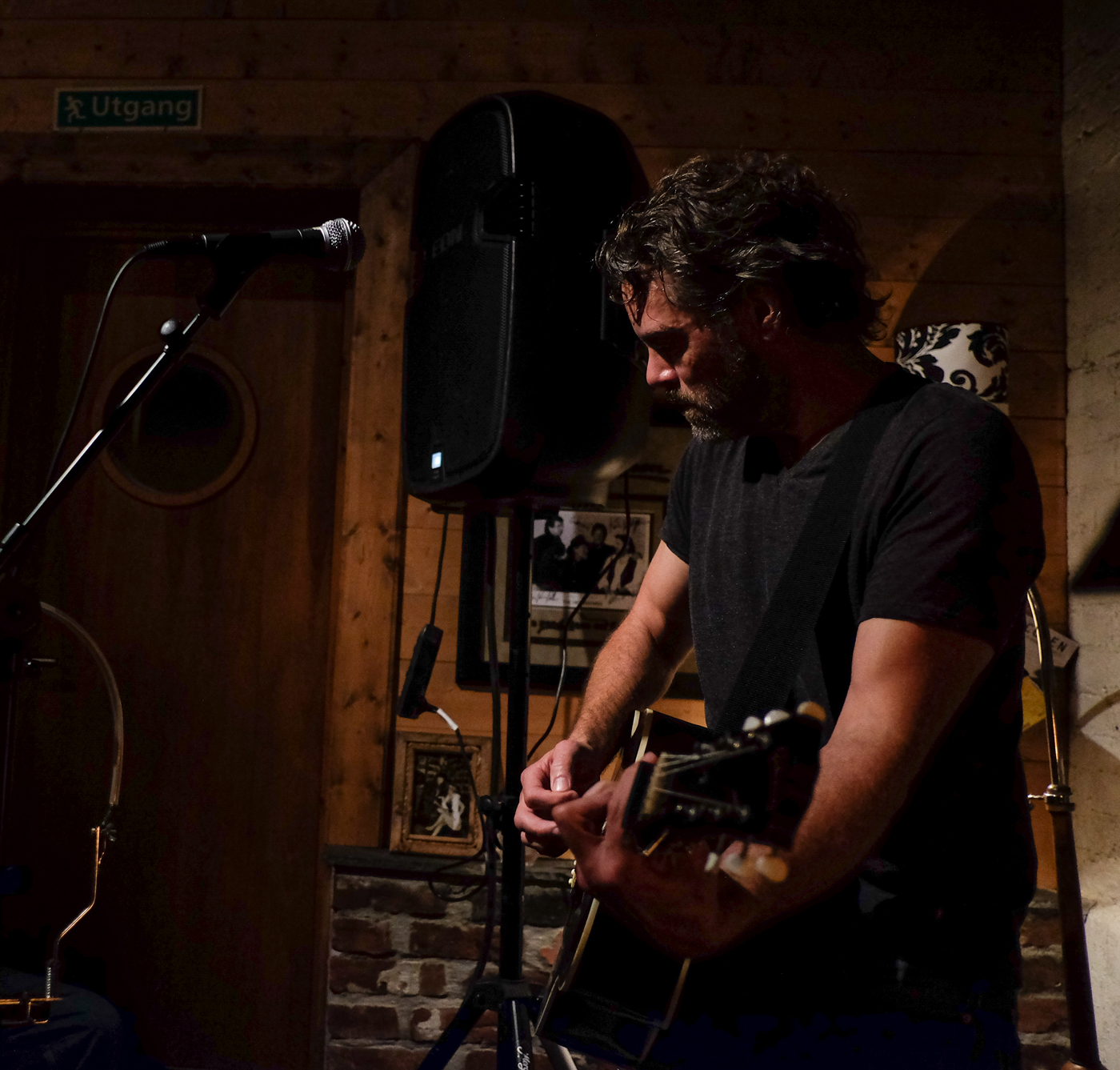
A: Could you please tell me a bit about the song Rust Belt Fields?
R: Oh, that’s a different kind of song. It is more of a strict narrative, and it’s a delicate balance to…well, it’s more of a social commentary than a political commentary.
A: You describe a small town, but you’re not celebrating it…you tell the story in a very straight way. This is how it was.
R: Exactly. It is that persons story and it deserves to be heard. I don’t know how it is here with the economy, but USA is such a huge country and it’s just been so hard to watch what was once the strength of the country, making things, building things, literally making things. We were good at making things. Then to watch that disappear…and for people who’ve spent their lives, you know the guy in the song he’s an auto worker. He has invested his life in this job, to raise a family and what do you do when that disappears? I mean, it just disappeared.
A: I thought of another song, 410. Here we meet the man again at a later stage maybe…
R: It’s the same guy if he grew up in a different county. And he doesn’t give a shit. He’s considering a different kind of life, he’s looking at his options.
A: For me, I don’t think he is going to shoot anyone. He’s a decent man pushed to his limits.
R: No, he is not gonna shoot anyone (smiles)
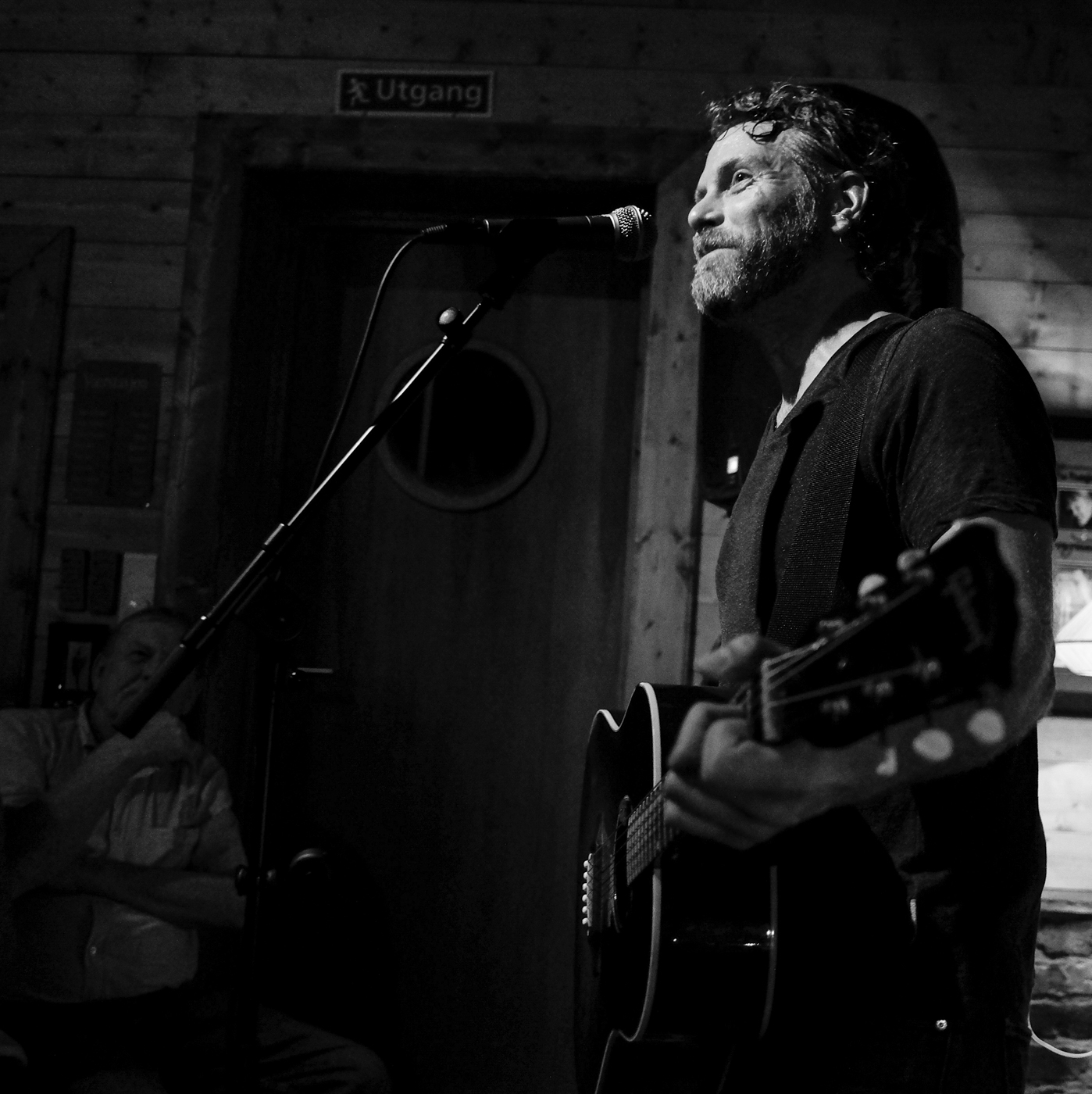
A: Tell us bit about your writing relationship with Slaid Cleaves, I first heard his version of Broke Down and then looked up your version.
R: Oh, written all his best songs, ha ha ha, no I always joke about it. Our collaborations are very seamless, sometimes I’m just an editor on his songs (like on Sinner’s Prayer) and sometimes we can not tell who wrote what. I’m proud of my place on Sinner’s Prayer, but that was a song Slaid brought in and asked for a little bit of assistance. He was the primary writer, I just helped him flesh it out a bit, some small corrections on the language… We have a good collaboration, we’ve known each other a long time. When I write with other people I know my lines in the finished song, I can kind of feel it. With Slaid it’s different, when we’ve finished a song, most of the time I don’t remember what part of the song I wrote and what part he wrote. It’s just a true collaboration.
A: You’ve worked with a lot of known or semi-known people…
R: Semi-known, yeah
A: For us that are into your kind of music, they are fairly known.
Rod smiles as he says: They’re famous to us right?
A: R.S. Fields is a very interesting producer, we love a lot of the albums that he has produced, especially the Billy Joe Shaver album…
R: He’s kind of a crazy guy, he he, he was interesting to work with. He is incredibly smart, really brilliant. he’s got great taste and I was flattered that he wanted to produce the album and work with me. The body of people that he has worked with is impressive. Tramp on your street by Billy Joe Shaver was the actual reason that I wanted to work with him.
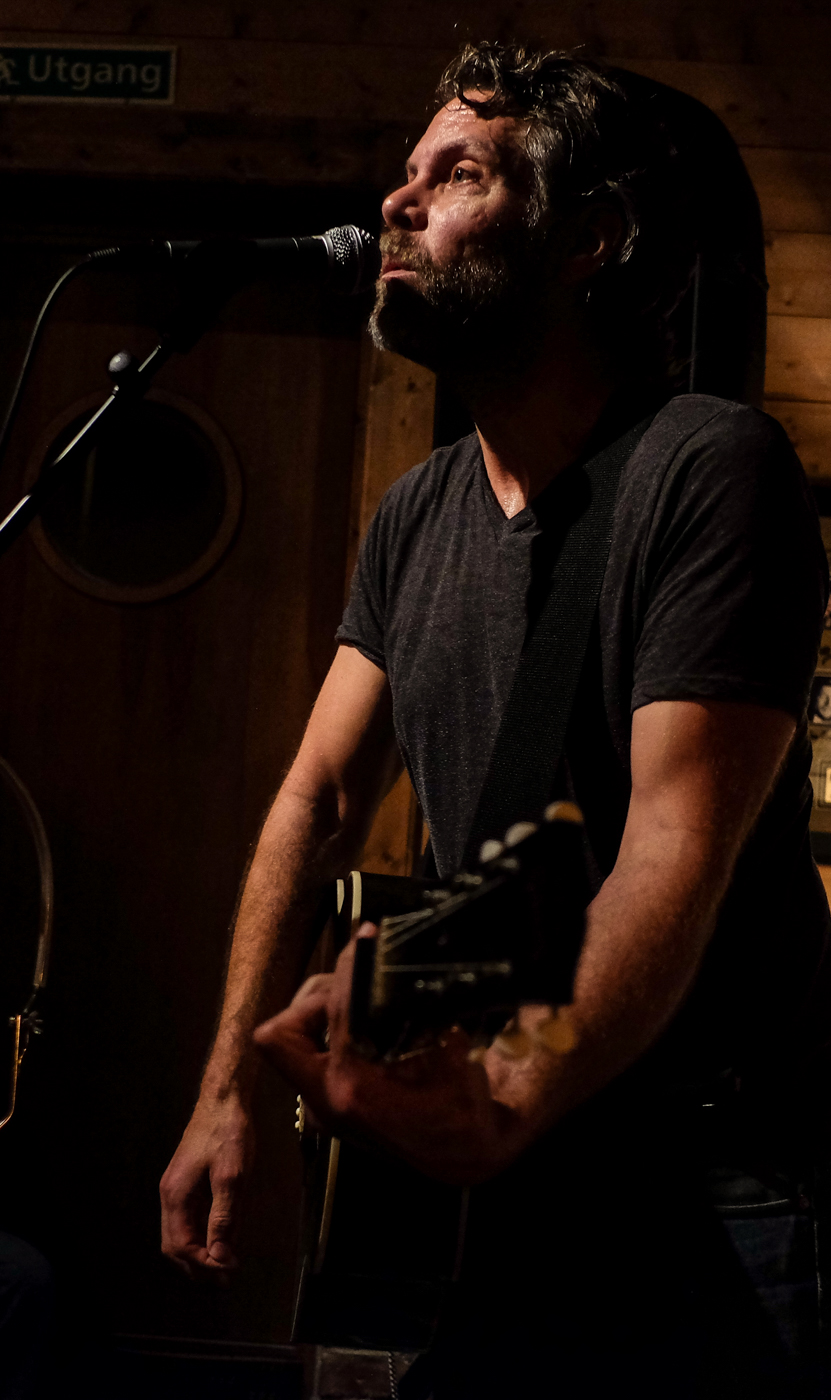
A: Before I came here I listened to some of the demos that ended up on your latest album, and it struck me that the songs on the finished album are not that different from the demos. R.S. Field didn’t change the songs too much.
R: Yeah, I mean that’s the producers job, be subtle and keep the essence of the songs. To put them in a setting that gets the most out of them. Help make decisions about instrumentation and layout of the song, tempo and feel and pitch, what key it should be in, you know. The songs didn’t change much, but it was very interesting working with him, I didn’t really know him. He said he wanted to do the record and he said come on down to meet me down here and just play through all the songs. We’ll just sit with a couple of notebooks and we will make arrangements and things like that.
So I went down, and he was living in Steve Earle’s house. He just gave me the address and I showed up and I’m looking around and thinking, this is your house but there were a lot of stuff that didn’t make sense. He said, Oh, yeah, this is Steve’s house. So that was kind of fascinating. We sat at Steve’s kitchen table for a couple of days. I played through all the songs, one at the time, we painstakingly re-arranged them, and then at the end we ended up re-arranging them back to the way they were when I brought them in. Ha ha ha. It’s very funny.
He wanted to see, he wanted to take the room and, Let’s paint it yellow. Look at it as yellow. Ok now, let’s make it blue. No, back to green, you know what I mean? It was very interesting.
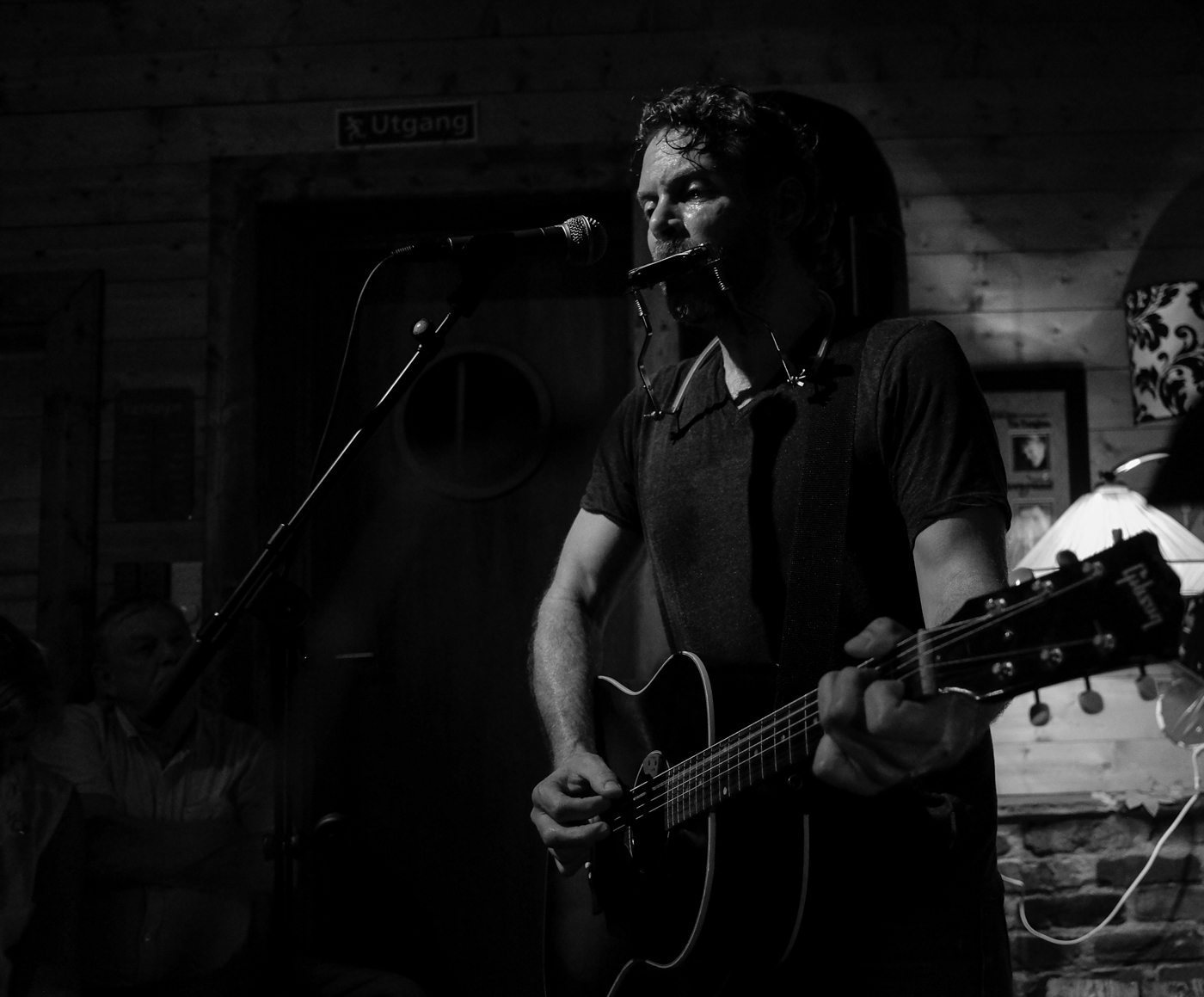
A: Your themes in the lyrics of all your albums has changed some over the years, but the biggest change has been on the melodies. You have mellowed down a bit, haven’t you?
R: Yeah, what I think has happened over the years is …when I made the first record I didn’t know what kind of setting I was going to be able to play in live. In Nashville I was somebody who always had a band, I never did a solo show. So the first one is a band record. Then on the second you can see it starts to shift a bit, because I started to be on the road more. It was a natural progression that I started to record songs closer to how I would do them live. The third even more. The fourth record, Summerbird, was a bit of an experiment. It is more mainstream sounding.
I’ve gotten more comfortable playing with just a guitar so the records have gotten quieter, relatively speaking.
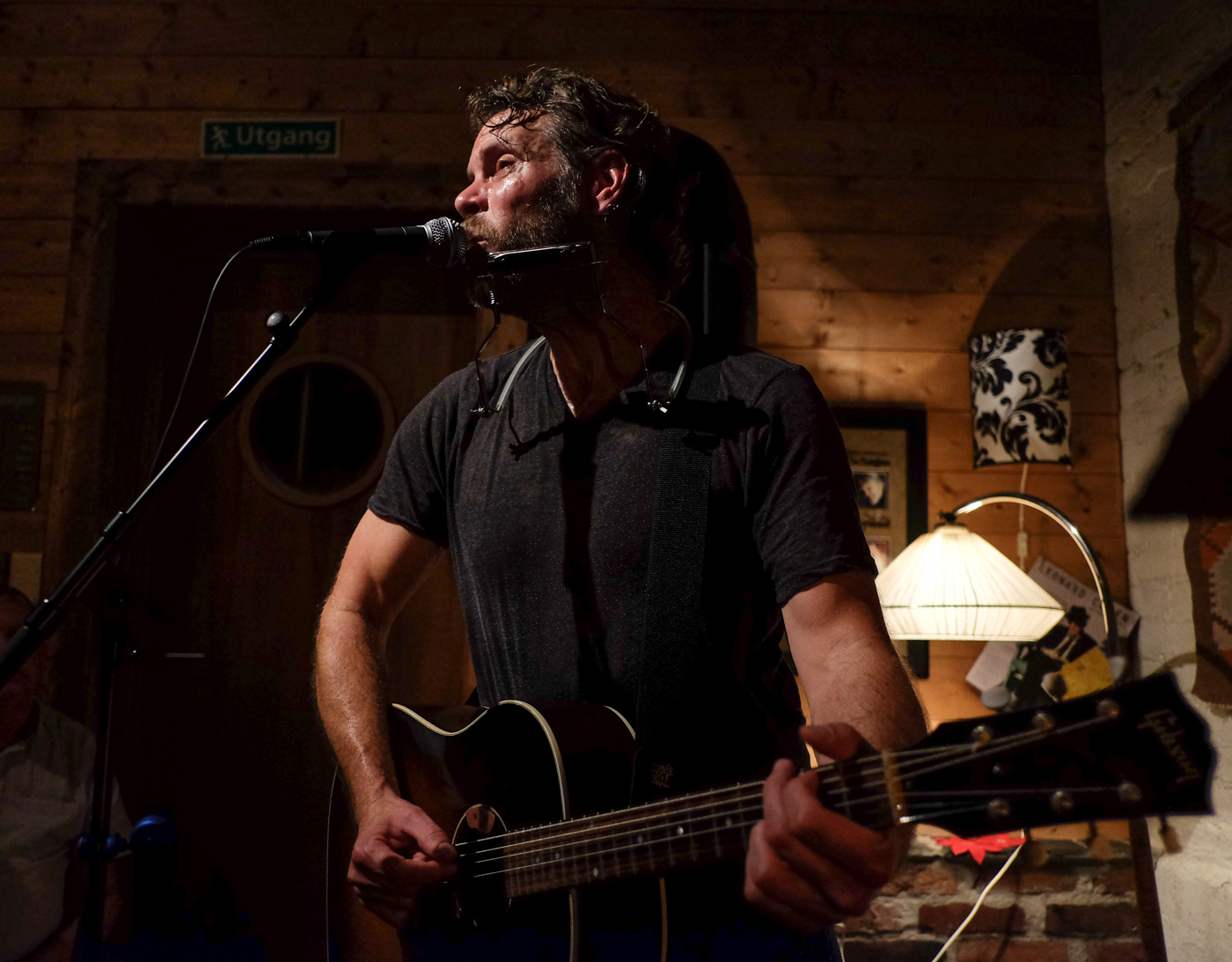
A: I believe I can hear some Springsteen influences in your songwriting.
R: I don’t see it that way as such…
A: Tell me a bit about your inspirations. My partner at alldylan.com, Egil, says that you sometimes sound like Rodney Crowell.
R: Yeah, I can see that, I suppose it’s the same mix…. as a kid I grew up on Motown and early Rock’n Roll. As I got obsessed with songs themselves I turned more to songwriters. Springsteen was one of them but equally The Clash, Tom Petty, Leonard Cohen and Jackson Browne. So…I was a big Springsteen fan when I was a kid and I do think that the way that he approaches it that informs what I do, but also Steve Earle.
I like the people you would expect from listening to my albums, Johnny Cash, Jackson Browne, Bruce Springsteen, Lucinda Williams, Gillian Welch, and all great writers.
The thing for me is that it’s really about the writing, that’s the centre of it. It’s not about…you know when I was a kid I had my Jimmy Page poster on the bedroom wall, just like everybody else. I loved those images of how enormous and mystical rock’n roll could be, but it became about something very, very different from that for me.
It became about storytelling. It became about characters. It became about writing.
Some people write songs because they want to stand on a stage with a guitar, but for me I stand and play because I want to bring this writing to people. It is the opposite. I’m not a guitar guy, I have one guitar. I’m not obsessed with that, although I think it’s beautiful and I understand why other people are.
For me it is all about the writing.
A: Bob Dylan once said something like, all songs already exists, you just have to pick them down, something like that, do you agree?
The song, You’re not missing anything, is a song that I dreamt. It was powerful, I mean songwriters dreams songs a lot, but it usually doesn’t make sense when you wake up. But that one I was able to turn into something, it was exiting. It was the first one I was actually able to turn into a complete song. So, I think I know what he’s talking about. For me it feels like you put your antenna up and the song comes through you…more than you pushing it out. Of course, it’s a combination of those things but when your instincts are clicking and it’s working, it feels more like it comes through you.
It’s even hard for us that writes songs to understand the process of songwriting, it’s a bit of a mystery, honestly. It’s a combination of instinct and desire, but when you’ve developed some skill for it, it’s as natural as eating or breathing. It comes from that place inside you where…you know when you walk down the street and think about the doings of the day. All those instincts running through your head, that’s the place where the ability to write songs come from after you have honed your skills. It becomes second nature.
A thing that is seldom talked about when it comes to songwriting is building your muscle to recognize when things are good and when things are true. You phrase something in a way and you think, “that’s not quite it”, and then you come back and you say, “oh no, it’s more like this”. This will be more elegant if I shift things around. The instinct for knowing in your spine when it’s right and you say, yeah,that’s it. You have to build that muscle.
A: Could you name three songs that you wished you had written?
R: Haha, let’s see, Unwed fathers (John Prine), I just marvel at that song, the first four lines are just perfection
Car wheels on a gravel road (Lucinda Williams), it’s a mysterious song isn’t it? You don’t know what exactly is happening and yet it makes perfect sense.
A: I remember back when it came out, and we had waited for so long for a new Lucinda Williams album
R: Yeah, they had to make it three times, right? Isn’t that the story? She made it once with Gurf (Morlix), I have it the bootleg of it. Then they made it…Steve Earle produced a version of it and then they brought in Roy Bittan to finish it. The record that came out has three producers I think.
My last pick will be a surprise because it’s a very mainstream song, if I had time to think about it I could think of a thousand songs, but know what I think is a beautiful song is Bob Seeger’s Against the wind. He’s very underrated as a writer, but that line: “I wish I didn’t know now, what I didn’t know then”. Man, so beautiful, isn’t it just great? I just love that.
It’s a darker song that it sounds like, it’s about regret and about confronting yourself. It’s a very brave song. In a setting that’s very easy to listen to.
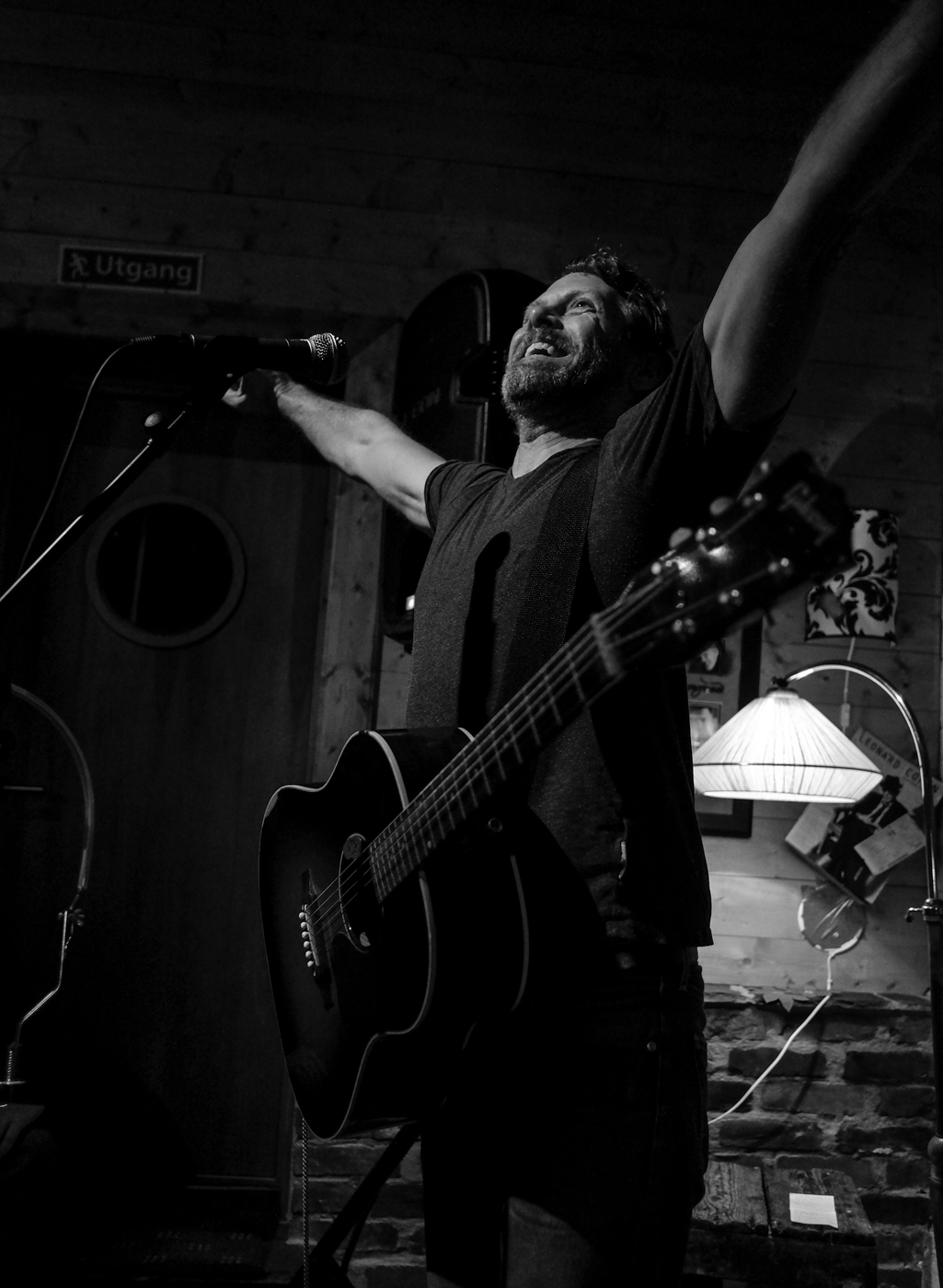
Alldylan: Could you tell us what album, from the last 5 years or so, that you think more people should listen to?
Rod Picott: Well, all of mine of course, hehe
The best record in the last…my favorite record in the last…15 years, is a record by a guy from Oklahoma named John Moreland. He’s just risen over the last year, but his record, In the Throes, I think is my favorite record in the last 15 years. I don’t think there’s even a record that comes close to t, I think it’s that good. It is absolutely beautiful.
A: He is (I think) considering a Kickstarter campaign to fund his next album, you also did that with Hang your hopes on a crooked nail, why did you change the title from, Rod Picott’s Circus of Misery and Heartbreak?
R: Maybe it’ll be the title of me next album. Hang your hopes on a crooked nail spoke to the group of songs better. Circus of Misery and Heartbreak has more of a nudge, has more of a wink to it. Hang your hopes on a crooked nail better explains the theme of perseverance in the songs I think. Not on every song, but it kind of runs through the album. I felt like that phrase captured that feeling.
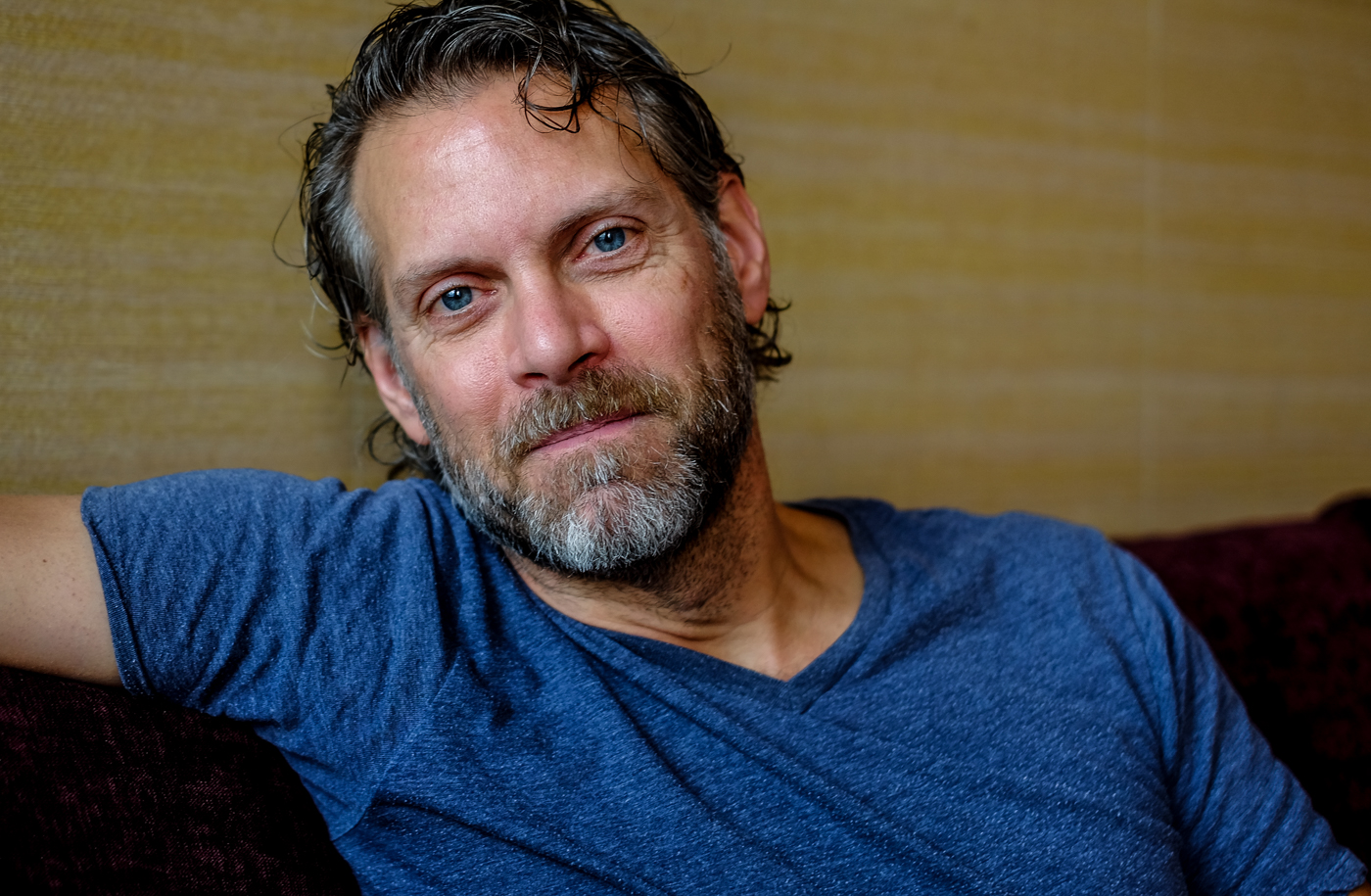
A: Have you started thinking about your next album?
R: Oh yeah, I’m more exited about my next album than I have been about any of them. I guess…I hope I feel that way right? Each time should be that way, but I think it will be slightly less narrative. It’s gonna be more personal and I think it’s gonna be very stripped down, and very raw. No strings or things like that. I want to make a record that…well, it’s all defined by the songs. I can’t really say , “I want to make a record like this “. It’s the wrong way to pursue it, but the songs are telling me that it’ll be very raw, stripped down, no overdubs, maybe no harmonies. I will try to capture on a record, the very centre of the most emotional and pure performance of a song. I’m gonna start it January and I want to do it very quick. I want to do it with the intent that the first take in the studio is THE final take. It is very rarely that records are done that way, but I want to try to capture that instant feeling.
A: We look forward to it. Thank you for taking the time to talk to me.
R: Thank you, I’m honored that you show an interest.
We take a few pictures and say goodbye.
This was a great meeting and a great talk. What a nice man!
We saw Rod later in the evening at Smio where he gave a very fine show. He played most of the songs from his latest album and a selection from his other albums. It was a perfect night, great songs in a lovely setting. The highlights of the concert for me, were Milkweed and Little Scar, two personal and beautiful ballads.
Thanks to Per Gunnar and the rest of the gang at Smio for booking such a fine singer/songwriter.
– Hallgeir

Thankyou, really good interview and I love the photos
Thank you!
– Hallgeir
Thank you for this interesting interview which introduced me to an artist I was not familiar with.
You are doing a great job with this blog and I really do like the pictures you take at concerts, excellent photography!
How nice of you to say that, thank you!
– Hallgeir